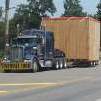Room for advancement in metallurgy?
-
Members Online
- MikeOH
- wombat
- jamicozzi
- Obsession2
- Stealth Mooney
- Sabremech
- thomas1142
- Hank
- Ragsf15e
- boboxa9895
- DanM20C
- Bolter
- Danb
- Pinecone
- 4cornerflyer
- BeachLifeMoon
- Alan Maurer
- eman1200
- benworthy058
- richardbrochu27
- Scottknoll
- DMM
- jkarch
- V1Rotate
- Ryankitfox
- CCAS
- KER
- KLRDMD
- Skyland
- FlyingScot
- TCC
- UteM20F
- Bartman
- sandeepdutta


Recommended Posts
Join the conversation
You can post now and register later. If you have an account, sign in now to post with your account.